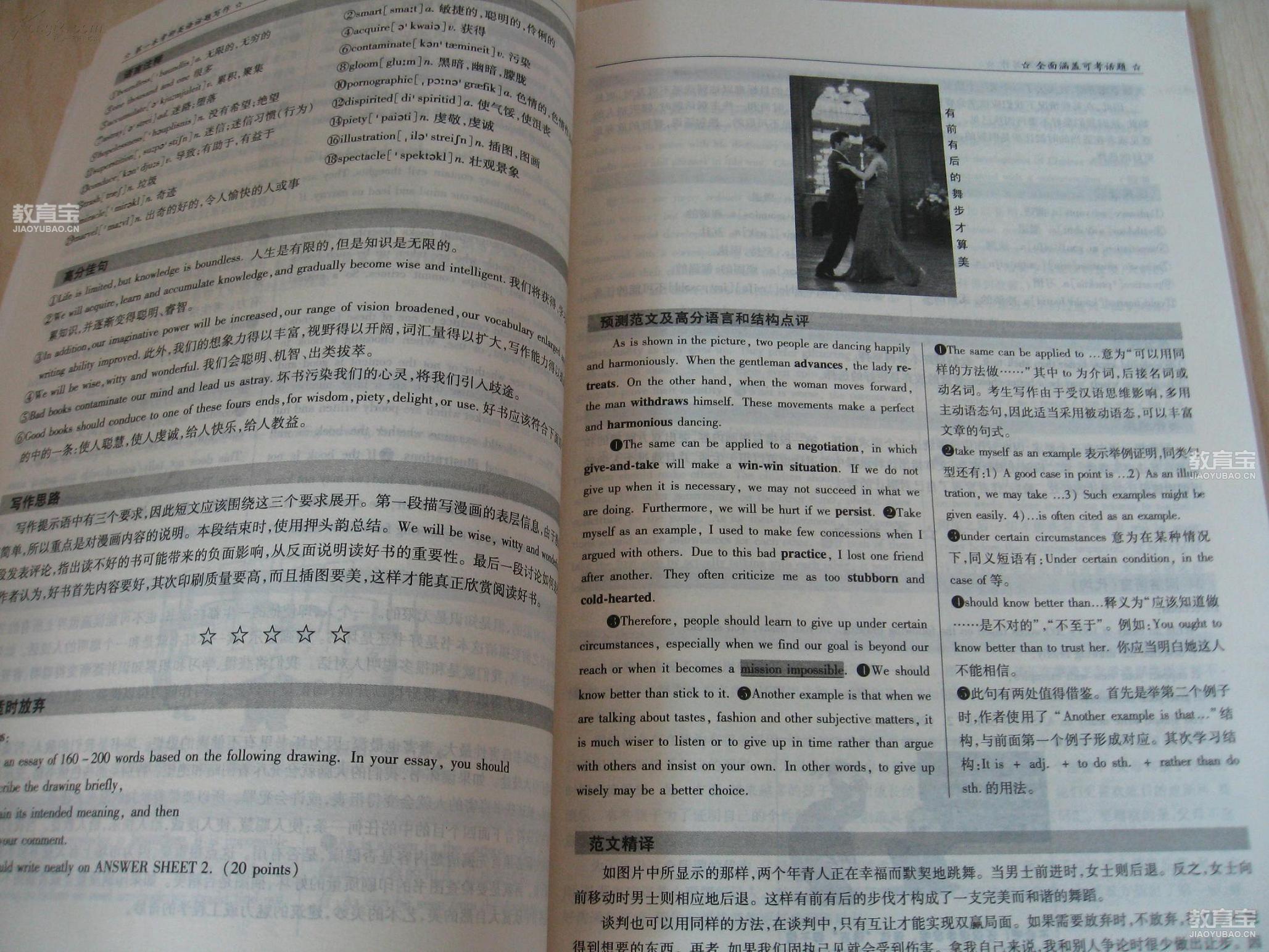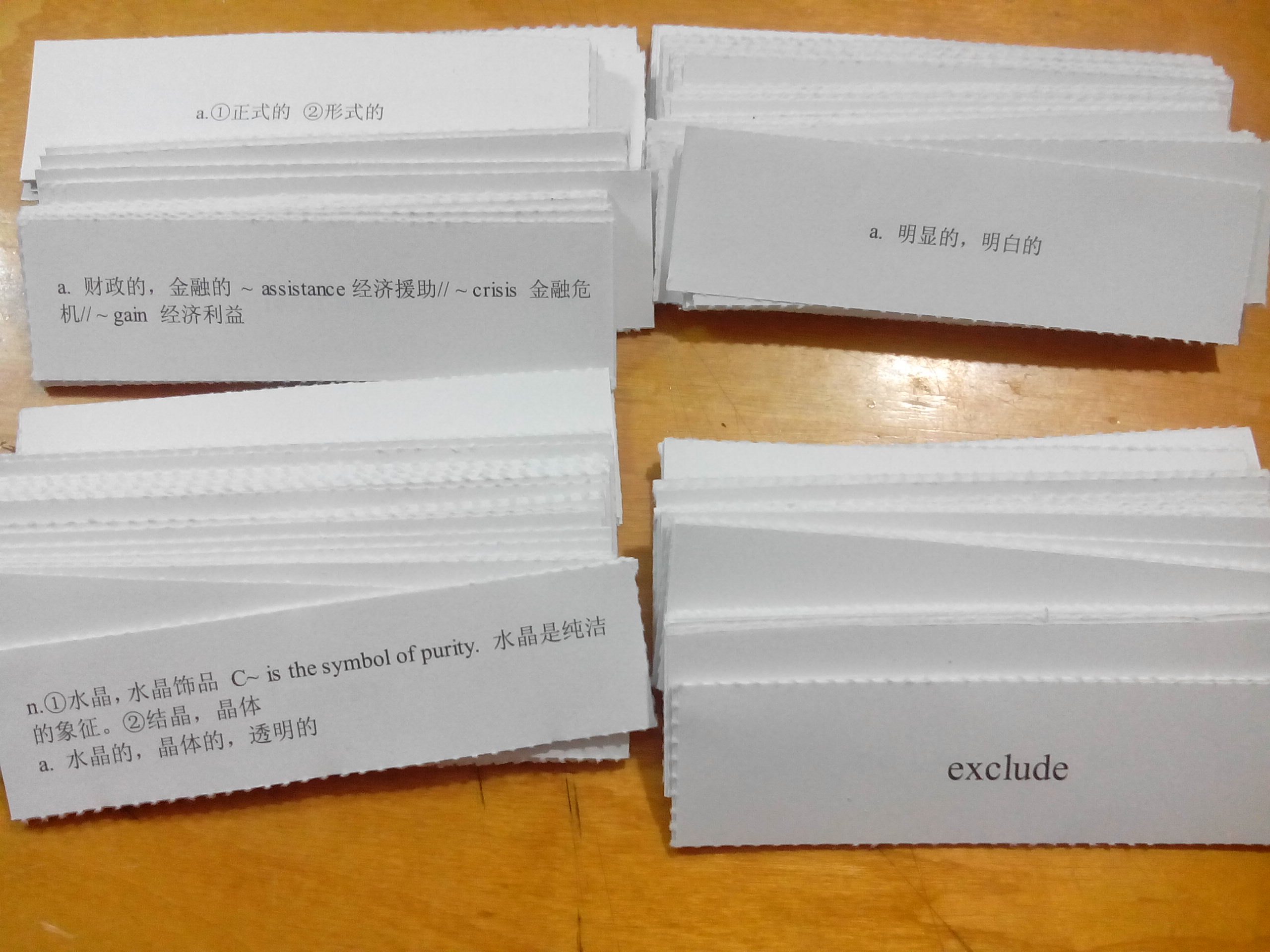 返回
教育头条
返回
教育头条

考研英语备考复习分享 考研复试
下面小编跟大家一起了解考研英语备考复习分享,希望对大家的学习有所帮助。
一个词:
Secular 你查牛津,意思是“世俗的”也就是和宗教没有关系的。
但是这个单词常用的意思是:“长期的”
08年的真题中就出现过: secular pattern 长期的模型
我们还可以搜到好多这样的例句:
1.地磁场长期变化(secular variation of geomagnetic field)
2. 长期的熊市 ( secular bear market)
3.长期的趋势(secular trend)
包括昨天的句子中:
Secular stagnation 长期的经济停滞
所以这个词算是牛津的一个bug了,
我也给商务印书馆发了邮件了,
看看他们给不给回复吧。
第二个词:
Growth
具体意思要看语境,
昨天的语境就是指经济的增长;
The world’s greying is inevitable.
(对了美式英语拼写为:gray)
But its negative effects on growth are not.
Its指的就是老龄化趋势;
所以后面的growth只可能是经济发展不可能再是年纪增加了。
由于你们平时读书太少,就容易钻牛角尖:
文章又没说是经济增长,我咋知道?
我只能露出慈父般的微笑说:以后就知道了。
08年第三篇的growth就是长高;
还有其他时候可以是发展;
今天的句子:
Japan’s health and labor minister has defended workplaces that require women to wear high heels to work, arguing it is “necessary and appropriate” after a petition was filed against the practice.
来想想你会怎么出题?
Which of the following is true?
(A) One minister objects to woman’s wearing high heels in workplace.
(B) A petition calls for the ban of requiring women to wear high heels to work.
(C) One minister argues it is “necessary and appropriate” to ban high heels.
(D) Many workplaces are against woman’s wearing high heels in workplace.

好好看书!
来看看单词:
1.Japan’s health and labor minister日本厚生劳动大臣
2. high heels 高跟鞋
3. file against 申请反对
4. defend 辩护,捍卫=guard; guard against 表示防范
5. petition 请求,申请
6. Argue= 认为;argue against 表示反对;
解析:
Japan’s health and labor minister has defended workplaces that require women to wear high heels to work, arguing it is “necessary and appropriate” after a petition was filed against the practice.
主干:
Japan’s health and labor minister has defended workplaces
日本厚生劳动省大臣为这些工作场所进行了辩护。
其他成分:
1.that require women to wear high heels to work,
这些这些工作场所要求女性穿高跟鞋上班
(that= workplaces)
2.arguing it is “necessary and appropriate”
Argue= 认为;argue against 表示反对
Argue的动作发出者是Japan’s health and labor minister
It指代对象是: 要求女性穿高跟鞋上班
这个大臣认为要求女性穿高跟鞋上班是必要和恰当的。
3. after a petition was filed against the practice.
filed against 申请反对
the practice=要求女性穿高跟鞋上班
参考译文:日本厚生劳动省大臣为要求女性穿高跟鞋上班的工作场所进行了辩护。在有人提出申述反对这种做法以后,这位大臣依然认为这样做是必要和恰当的。
所以思考题:
Which of the following is true?
(A) One minister objects to woman’s wearing high heels in workplace.
一位部长反对妇女在工作场所穿高跟鞋。
当然不对了!
(B) A petition calls for the ban of requiring women to wear high heels to work.
号召禁止要求妇女穿高跟鞋上班。
正确!
(C) One minister argues it is “necessary and appropriate” to ban high heels.
一位部长认为禁止高跟鞋是“必要的和恰当的”。
当然不对了!
一个词:
Secular 你查牛津,意思是“世俗的”也就是和宗教没有关系的。
但是这个单词常用的意思是:“长期的”
08年的真题中就出现过: secular pattern 长期的模型
我们还可以搜到好多这样的例句:
1.地磁场长期变化(secular variation of geomagnetic field)
2. 长期的熊市 ( secular bear market)
3.长期的趋势(secular trend)
包括昨天的句子中:
Secular stagnation 长期的经济停滞
所以这个词算是牛津的一个bug了,
我也给商务印书馆发了邮件了,
看看他们给不给回复吧。
第二个词:
Growth
具体意思要看语境,
昨天的语境就是指经济的增长;
The world’s greying is inevitable.
(对了美式英语拼写为:gray)
But its negative effects on growth are not.
Its指的就是老龄化趋势;
所以后面的growth只可能是经济发展不可能再是年纪增加了。
由于你们平时读书太少,就容易钻牛角尖:
文章又没说是经济增长,我咋知道?
我只能露出慈父般的微笑说:以后就知道了。
08年第三篇的growth就是长高;
还有其他时候可以是发展;
今天的句子:
Japan’s health and labor minister has defended workplaces that require women to wear high heels to work, arguing it is “necessary and appropriate” after a petition was filed against the practice.
来想想你会怎么出题?
Which of the following is true?
(A) One minister objects to woman’s wearing high heels in workplace.
(B) A petition calls for the ban of requiring women to wear high heels to work.
(C) One minister argues it is “necessary and appropriate” to ban high heels.
(D) Many workplaces are against woman’s wearing high heels in workplace.

好好看书!
来看看单词:
1.Japan’s health and labor minister日本厚生劳动大臣
2. high heels 高跟鞋
3. file against 申请反对
4. defend 辩护,捍卫=guard; guard against 表示防范
5. petition 请求,申请
6. Argue= 认为;argue against 表示反对;
解析:
Japan’s health and labor minister has defended workplaces that require women to wear high heels to work, arguing it is “necessary and appropriate” after a petition was filed against the practice.
主干:
Japan’s health and labor minister has defended workplaces
日本厚生劳动省大臣为这些工作场所进行了辩护。
其他成分:
1.that require women to wear high heels to work,
这些这些工作场所要求女性穿高跟鞋上班
(that= workplaces)
2.arguing it is “necessary and appropriate”
Argue= 认为;argue against 表示反对
Argue的动作发出者是Japan’s health and labor minister
It指代对象是: 要求女性穿高跟鞋上班
这个大臣认为要求女性穿高跟鞋上班是必要和恰当的。
3. after a petition was filed against the practice.
filed against 申请反对
the practice=要求女性穿高跟鞋上班
参考译文:日本厚生劳动省大臣为要求女性穿高跟鞋上班的工作场所进行了辩护。在有人提出申述反对这种做法以后,这位大臣依然认为这样做是必要和恰当的。
所以思考题:
Which of the following is true?
(A) One minister objects to woman’s wearing high heels in workplace.
一位部长反对妇女在工作场所穿高跟鞋。
当然不对了!
(B) A petition calls for the ban of requiring women to wear high heels to work.
号召禁止要求妇女穿高跟鞋上班。
正确!
(C) One minister argues it is “necessary and appropriate” to ban high heels.
一位部长认为禁止高跟鞋是“必要的和恰当的”。
当然不对了!
以上就是教育宝头条为大家带来的,感谢您的观看考研英语相关资讯。本站提供考研英语培训、资讯、资料,详细联系我微信:18560125702喜欢记得点赞哦,教育宝头条,每天都为你带来新鲜的学习资讯,别忘了关注哦。返回教育宝头条
【免责声明】本文仅代表作者本人观点,与教育宝无关。教育宝对文中陈述、观点判断保持中立,不对所包含内容的准确性、可靠性或完整性提供任何保证。请读者仅作参考,特此声明!
相关推荐
-
复试是考研中很关键的一步在口语和听力部分有什么诀窍可以保证高分
考研英语 2018年08月15日 16:55:44 -
考研英语 2018年08月22日 00:53:16
-
考研英语 2018年09月19日 09:57:04
-
雅思阅读Global Warming in New Zealand真题讲解
考研英语 2018年09月19日 09:57:08 -
考研英语 2018年09月19日 13:41:54





